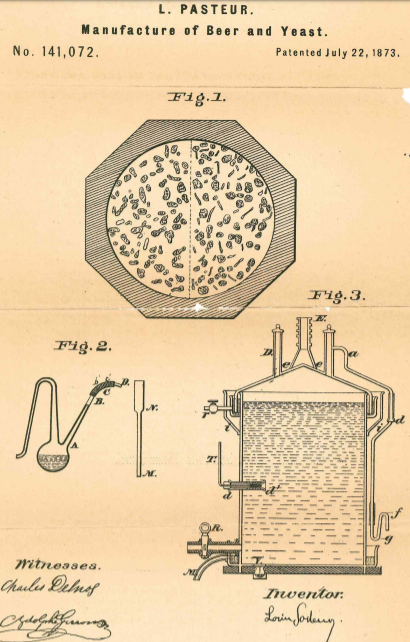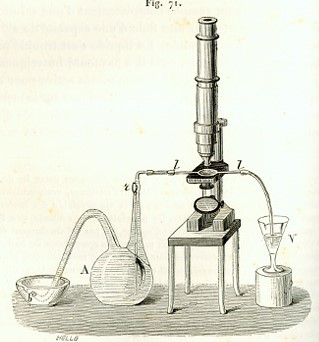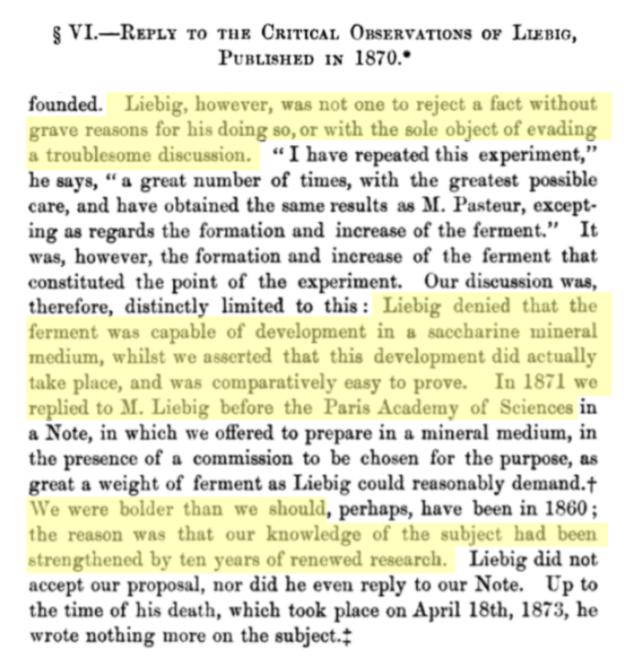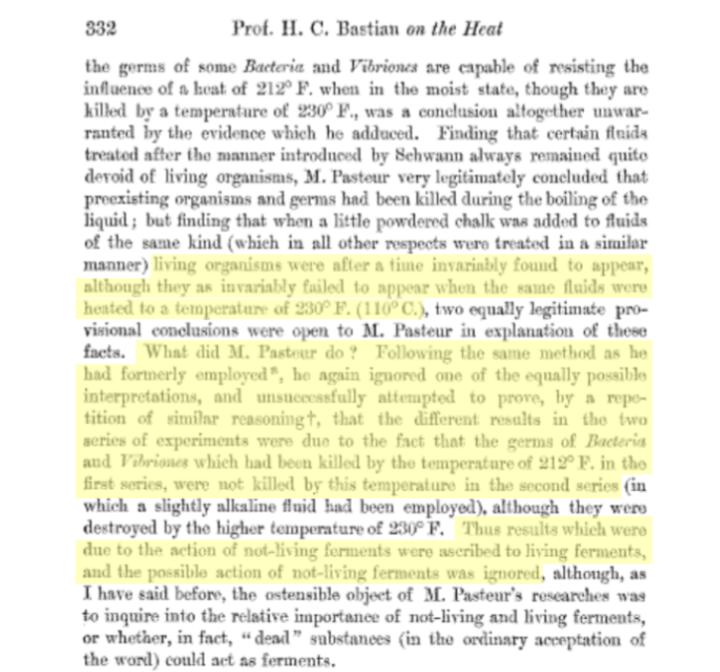“ Now that the discovery of ferments and their living nature, and our knowledge of their origin, may have solved the mystery of the spontaneous appearance of fermentations in natural saccharine juices, we may ask whether we must still regard the reactions that occur in these fermentations as phenomena inexplicable by the ordinary laws of chemistry. We can readily see that fermentations occupy a special place in the series of chemical and biological phenomena...a mode of life which is essentially different from that in other vegetables. ”
~ Louis Pasteur
Discoveries Relating to Fermentation
A Biological Reaction
Pasteur discovered that fermentation was not a chemical reaction, but a biological process.

Improvement in the Manufacture of Beer and Yeast, Inventor: Louis Pasteur, 1873, National Archives (Kansas City)
A diagram demonstrates the microscopic difference between the thin figures of bacteria (right) and the absence of them (left).

Exhibition: Brewing Mysteries, National Library of Medicine
Finding the Cause for Spoiled Wine
Pasteur published Études sur la Bière (Studies of Fermentation) to communicate his findings to scientists and winery owners that alcohol could only be fermented by yeast cells. He noted rapidly heating alcohol then promptly cooling them killed harmful bacteria: thus inventing pasteurization to preserve wine and beer.
" At this point we must observe--for it is a matter of great importance--that in the operations of the brewer there is always a time when the yeasts are in this state of vigorous youth of which we have been speaking, acquired under the influence of free oxygen... The yeast immediately seizes upon this gas and acquires a state of freshness and activity, which permits it to live afterwards out of contact with air, and to act as a ferment. Thus, in ordinary brewery practice, we find the yeast already formed in abundance even before the earliest external signs of fermentation have made their appearance. In this first phase of its existence, yeast lives chiefly like an ordinary fungus."
~ Louis Pasteur
Controversy
Some scientists criticized Pasteur’s methods of experimentation, claiming that they were invalid.
Justus von Liebig

Studies on Fermentation: The Diseases of Beer, Their Causes, and the Means of Preventing Them, 1879
Pasteur's response to German scientist Liebig. Pasteur includes specific references to Liebig's arguments and directly addresses them.
Dr. Bastian

Further Observations on the Temperature at Which Bacteria, Vibriones, and Their Suppossed Germs Are Killed When Exposed to Heat in a Moist State; and on the Causes of Putrefaction and Fermentation, 1872 - 1873, Royal Society
Claude Bernard
Bernard's (French physiologist) 1877 treatise Principles of Médecine Expérimentale was critical of Pasteur’s methods.
" One must not let oneself be dominated by one's induced idea which is at bottom nothing but a hypothesis... I try to destroy my hypothesis rather than to verify it. "
~ Claude Bernard